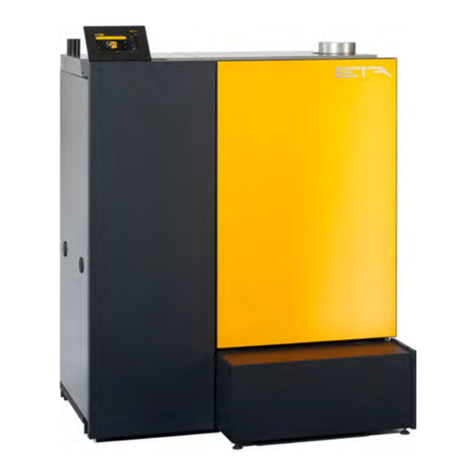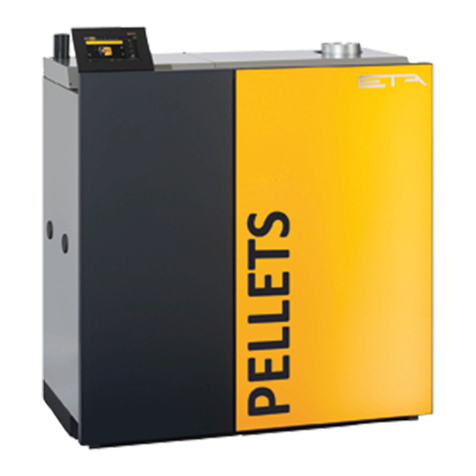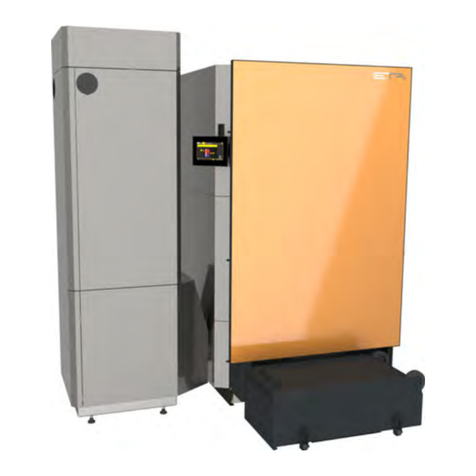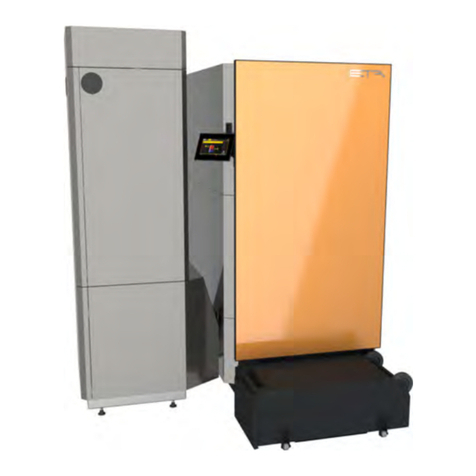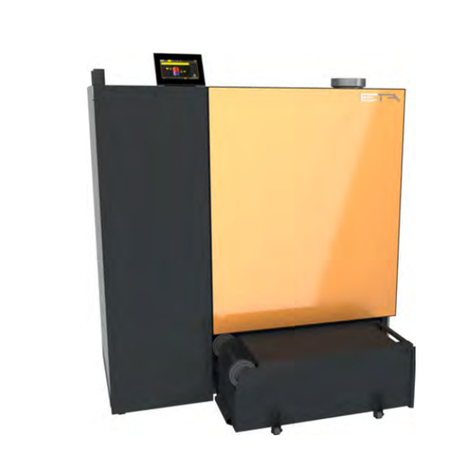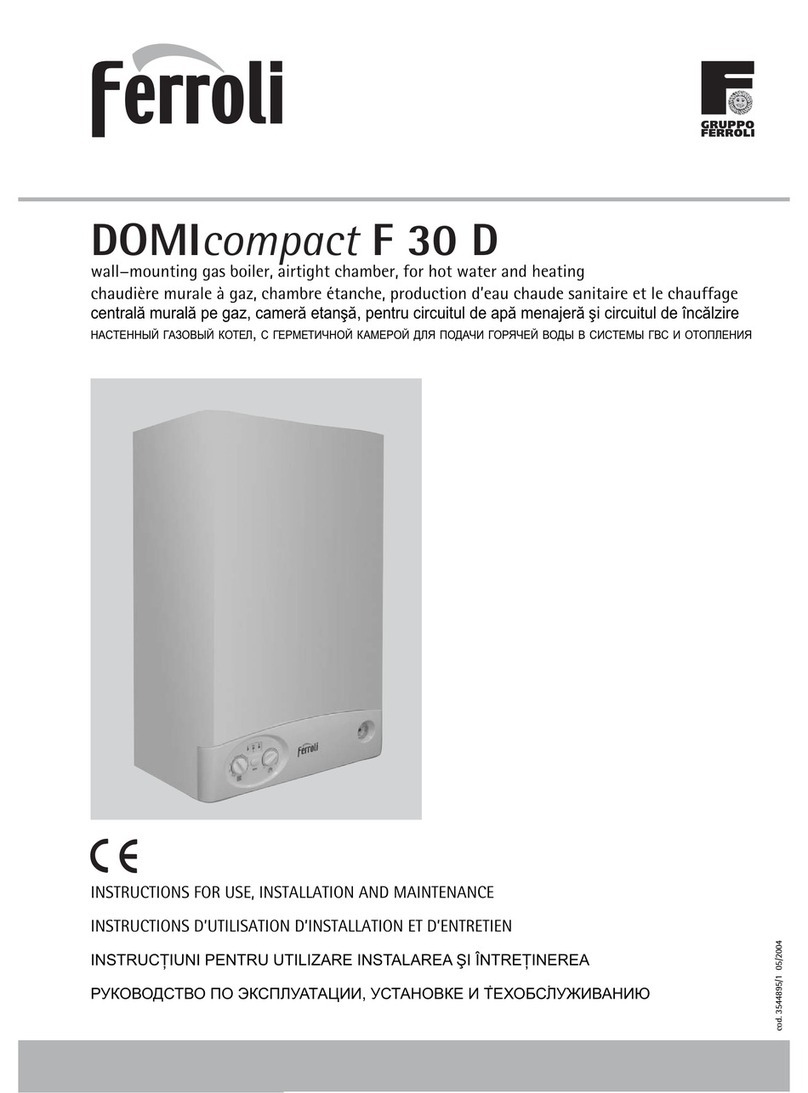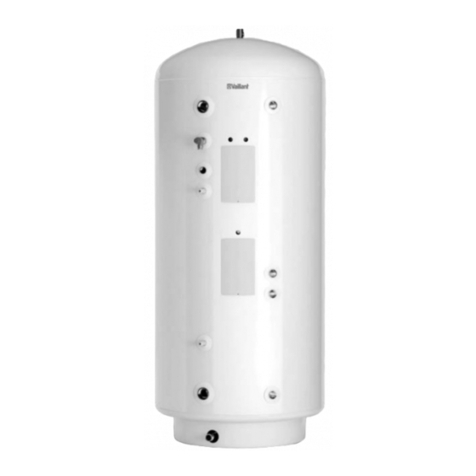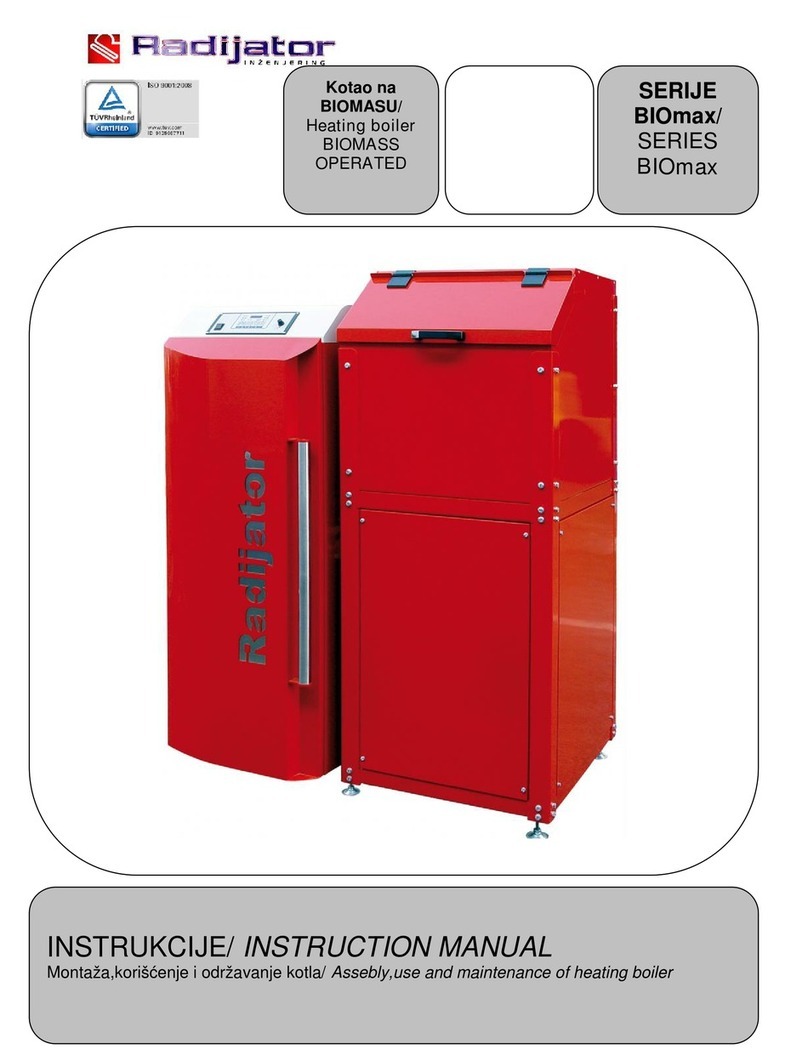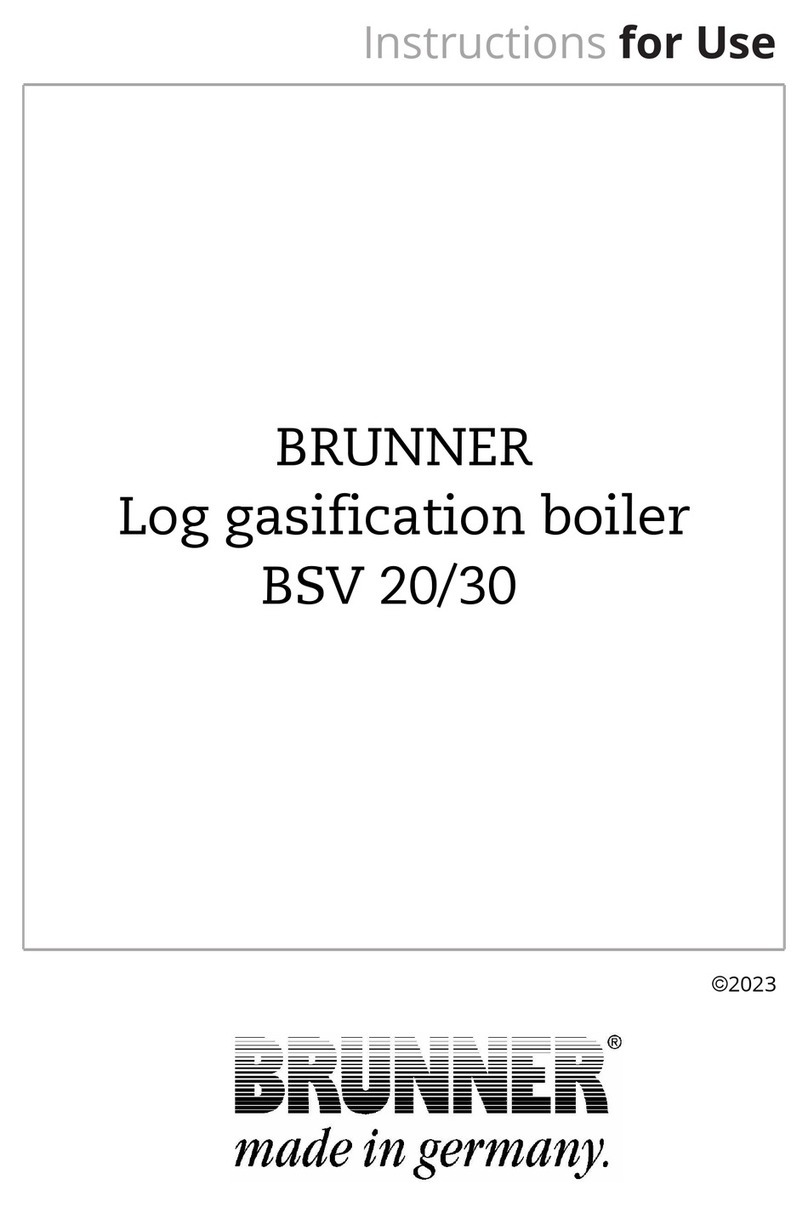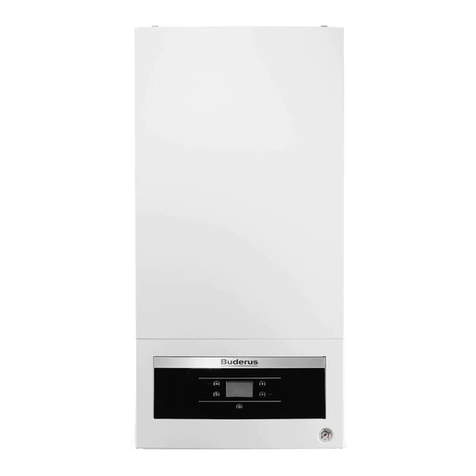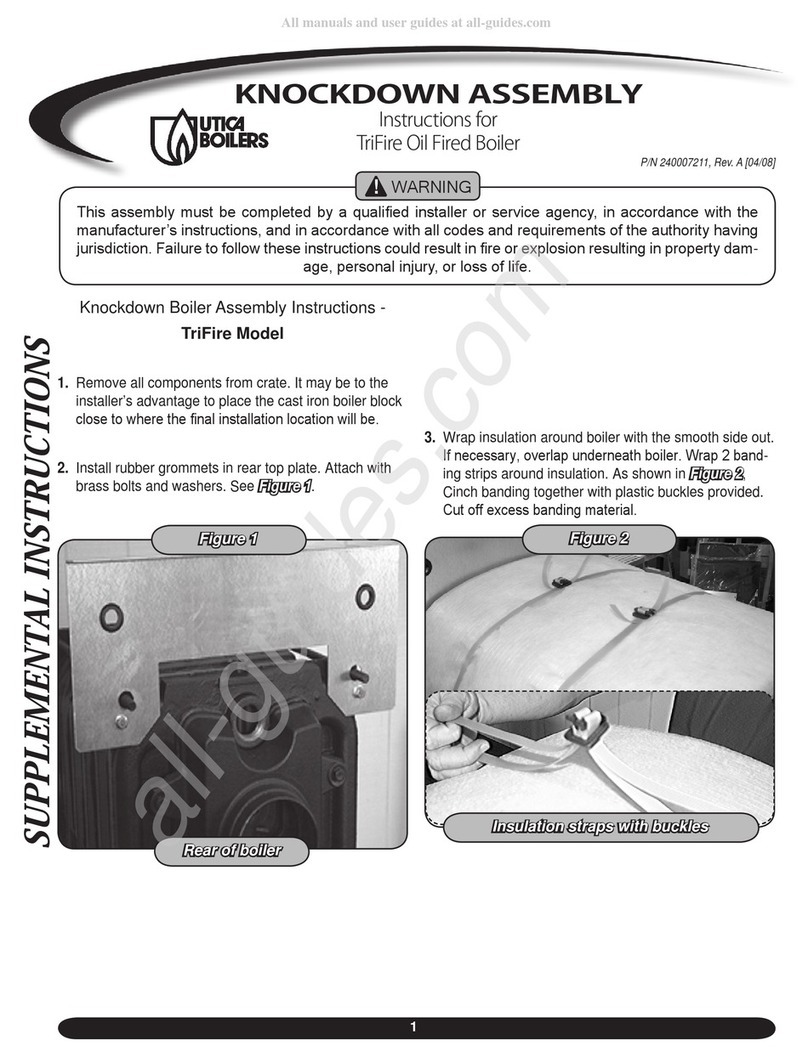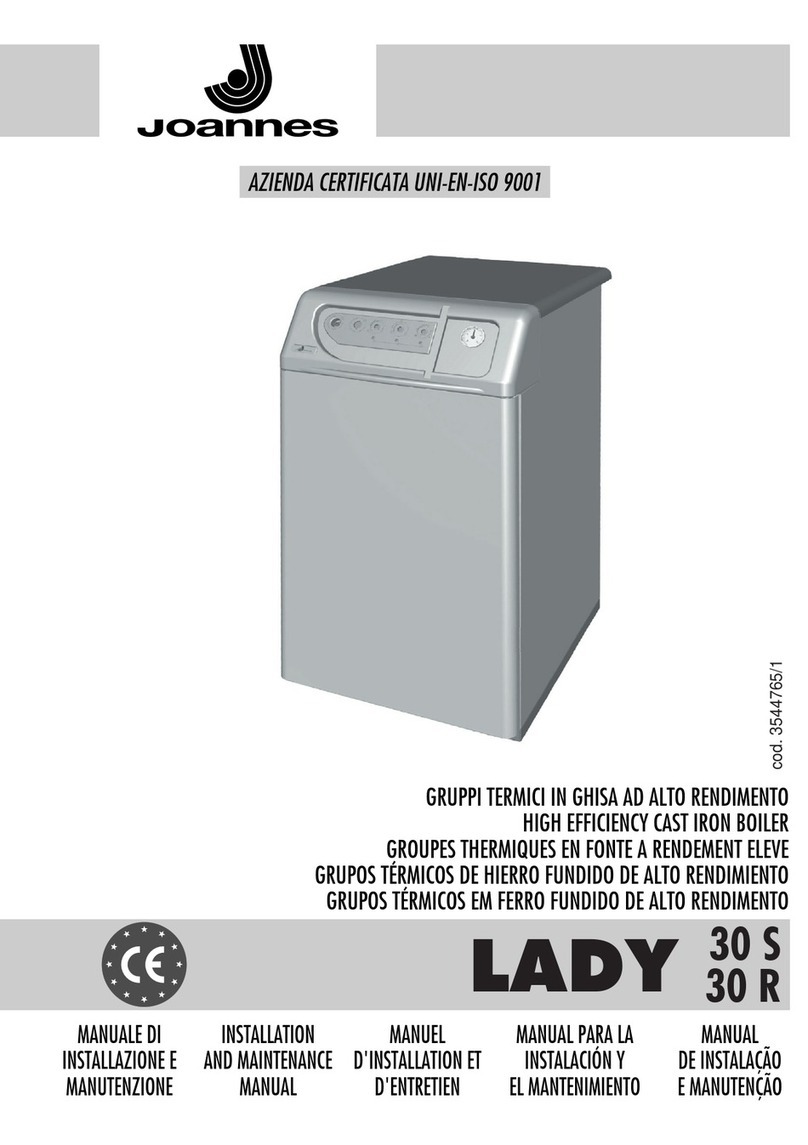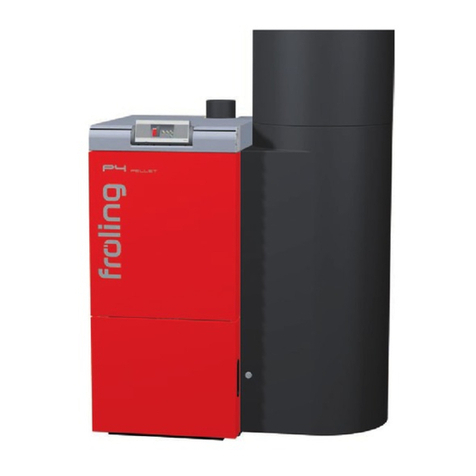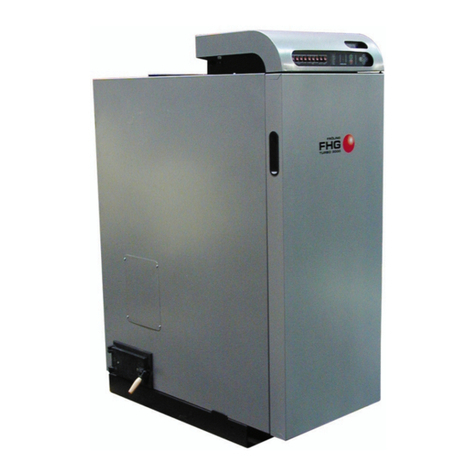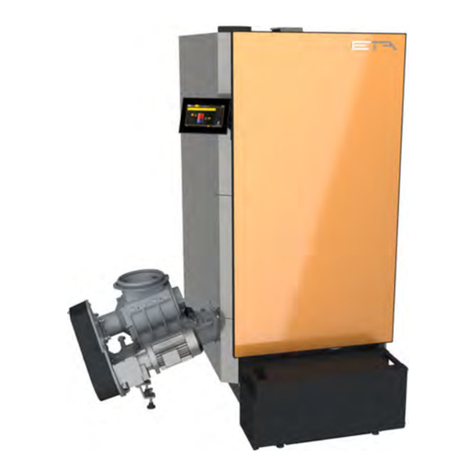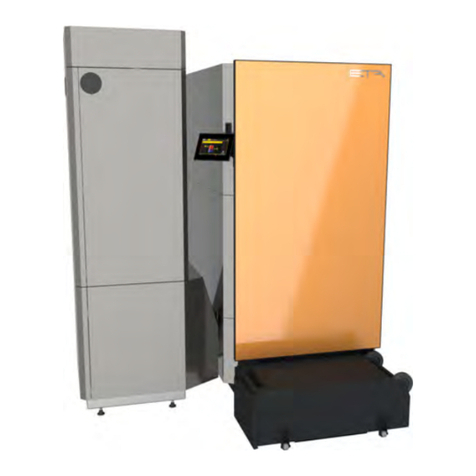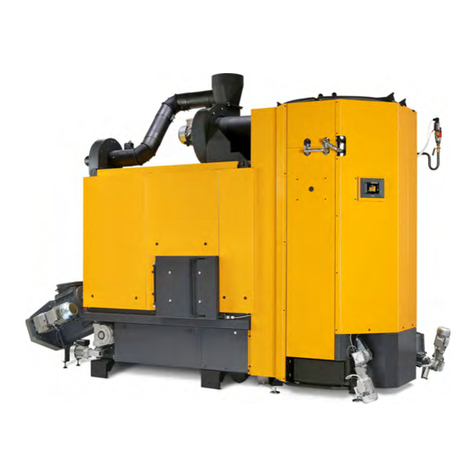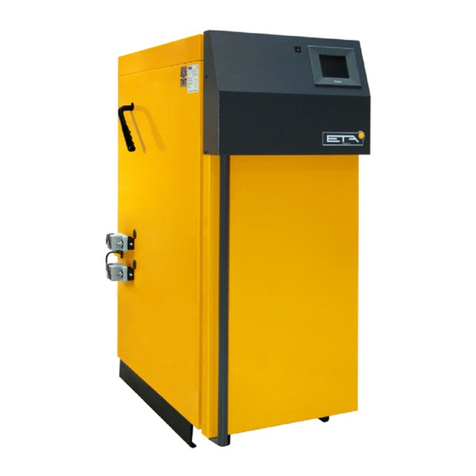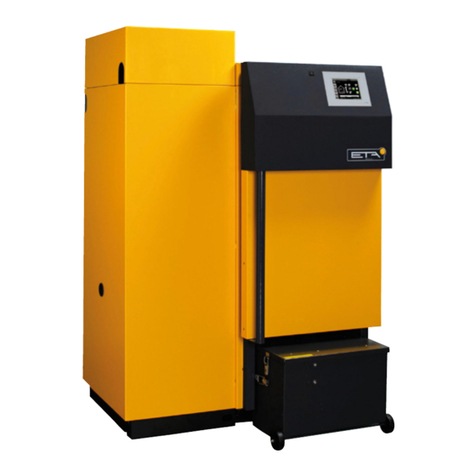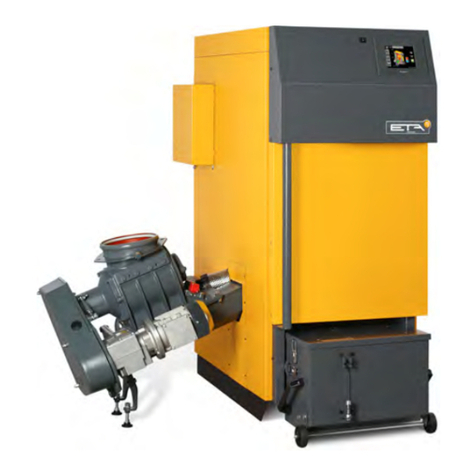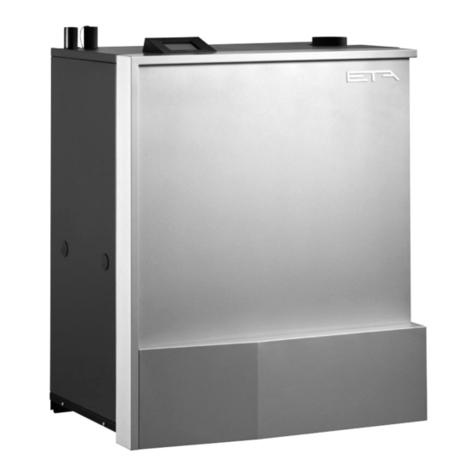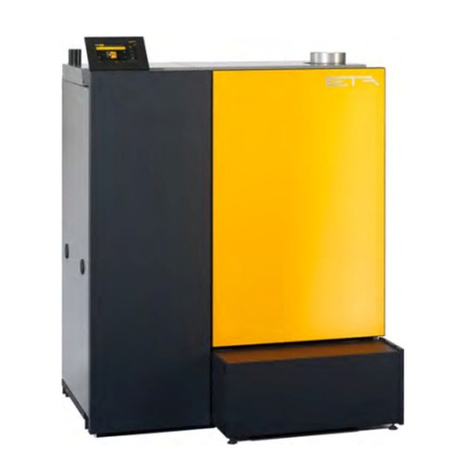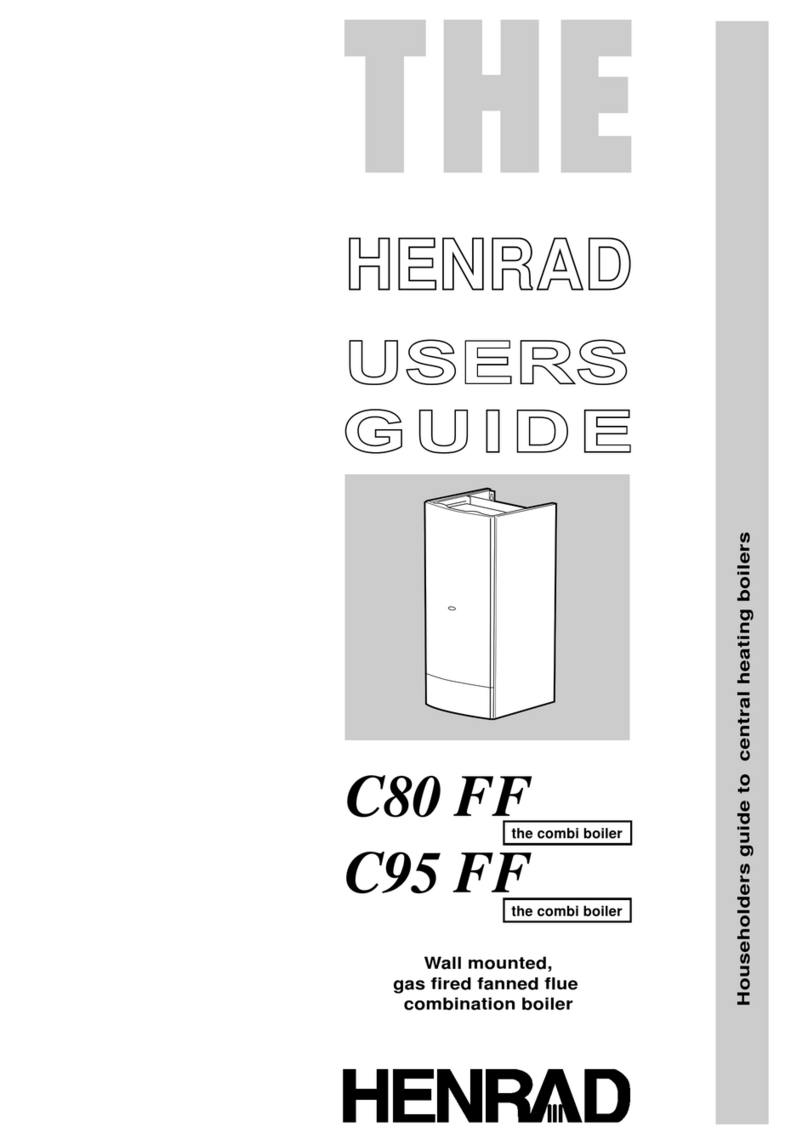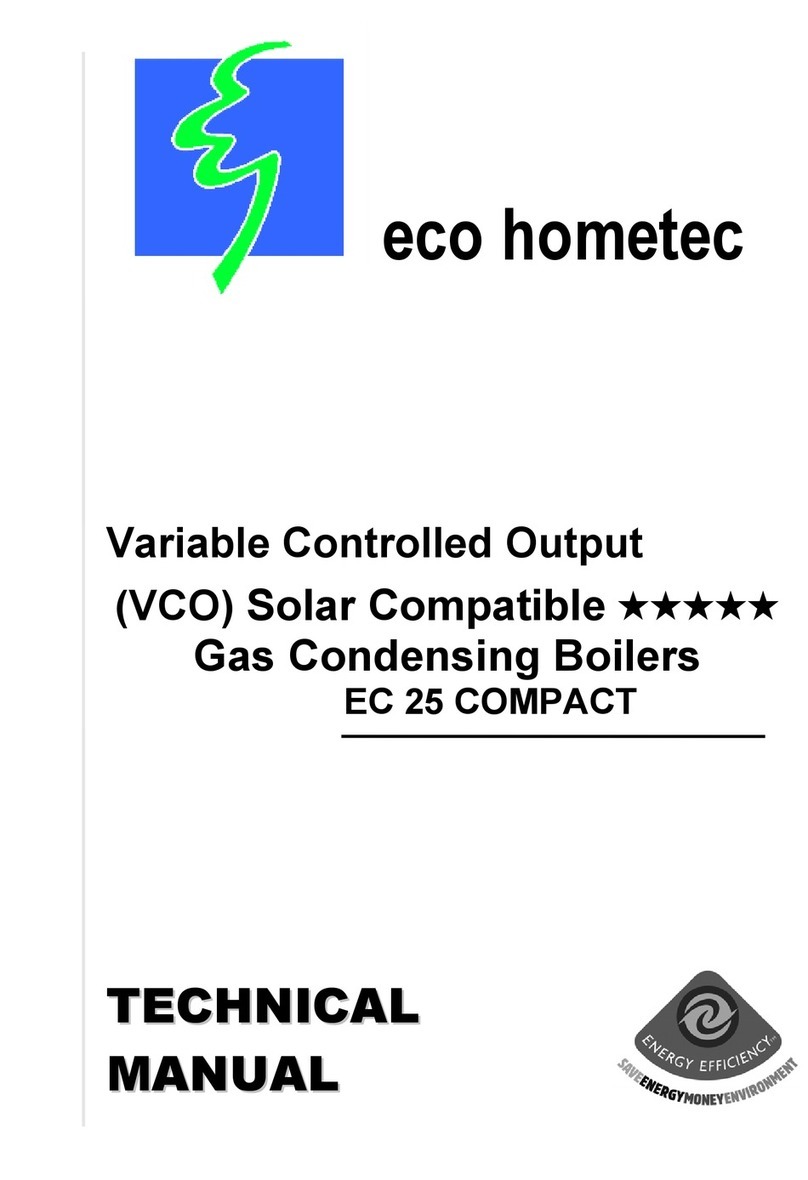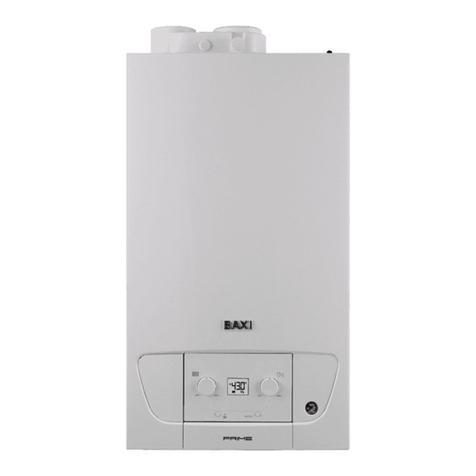
General Warranty, guarantee and liability
Observe local building and fire safety regulations
Local building and fire safety regulations must be
observed.
Suitable fuel
• Wood chips according EN ISO 17225-4:2014,
quality classes A1/A2/B1/B2, size P16S-P31S,
maximum water content 40% (M40)
• Wood pellets according EN ISO 17225-2:2014,
quality class A1, ENplus-A1
Operation with unsuitable fuels, in particular
those with high-slag pellets (such as from grain
waste) or miscanthus, is not permitted.
Ensure supply air is free from aggressive
substances
The air supplied to the boiler must be free from
aggressive substances such as chlorine and fluorine
from solvents, cleaning agents, adhesives and propel-
lants, or ammonia from cleaning agents, to prevent
corrosion of the boiler and chimney.
Permissible water hardness
Water is the intended heat-transfer medium. For
special anti-frost requirements, up to 30% glycol may
be added. Softened water is required for the initial fill-
up of the heating system and for refilling after repairs.
Addition of hard water should be minimised to limit
limescale build-up in the boiler.
In order to protect the boiler from calcification, the
water hardness of the heating water must be
taken into account. Observe the indications outlined in
ÖNORM H 5195-1. Details can be found in chapter 7.3
"Water hardness".
pH value between 8 and 9
The pH value of water used to fill the heating system
must be between 8 and 9.
Use a sufficient number of shut-off valves
Set enough shut-off valves to avoid bleeding large
amounts of water during repairs. Any leaks in the
system must be repaired at once.
Install two safety valves and two thermal
discharge valves
Two safety valves (activated at 3 bar) must be installed
as protection against overpressure. The plant operator
must install two thermal discharge valves with a
activation temperature of 97°C maximum (approved
as per EN 14597).
As an option, the boiler may be operated at a
maximum operating pressure of 6 bar. For this, all
other system components also have to be designed for
this higher operating pressure.
Provide a sufficiently large expansion tank or a
pressure maintaining device
To prevent air from being drawn in while the system is
cooling, the heating system professional must provide
a sufficiently large expansion tank or a pressure
maintaining device.
Open expansion tanks must not be used.
Ensure sufficient bleeding of the system
Open expansion tanks or underfloor heating with
permeable piping have a high air intake, resulting in
above-average boiler corrosion. Corrosion damage to
the boiler due to insufficient bleeding or high air intake
is excluded from warranty, guarantee and liability.
Sufficient power
Operation at lower power than the lowest power
specified on the type plate is not permitted.
Expanding the control system
Only components provided by us may be used for
expanding the control system, unless these are
generally available standard devices, such as thermo-
stats.
Regularly perform cleaning and maintenance
Cleaning and maintaining the product is essential. The
required steps and intervals are either contained in this
documentation or included as a separate document.
Repairs
Repairs are only permitted using spare parts provided
by us. The only exceptions are common standardised
parts such as electrical fuses or fastening materials, as
long as they possess the required features and do not
restrict the functionality of the system.
Proper installation
The installing contractor is liable for proper installation
according to the corresponding installation instructions
and the relevant rules and safety regulations. If you as
customer have installed the heating system partly or
entirely without relevant training and in particular
without up-to-date practical experience, without having
the installation checked by a trained and responsible
expert, we exclude defects in our delivery and conse-
quential damages resulting from this cause from our
warranty, guarantee and liability.


